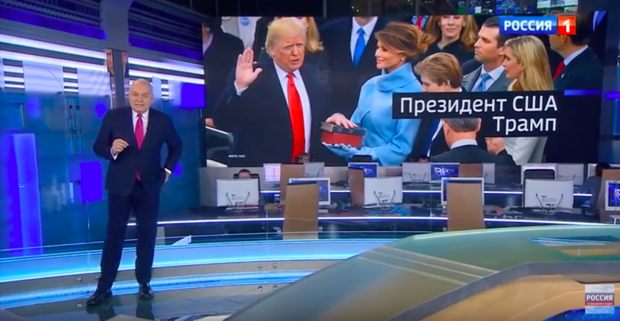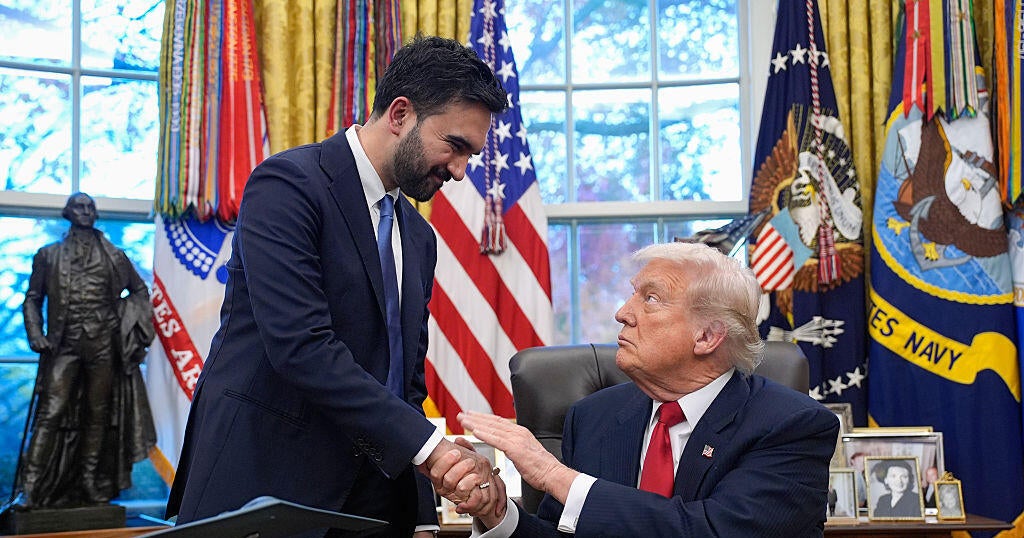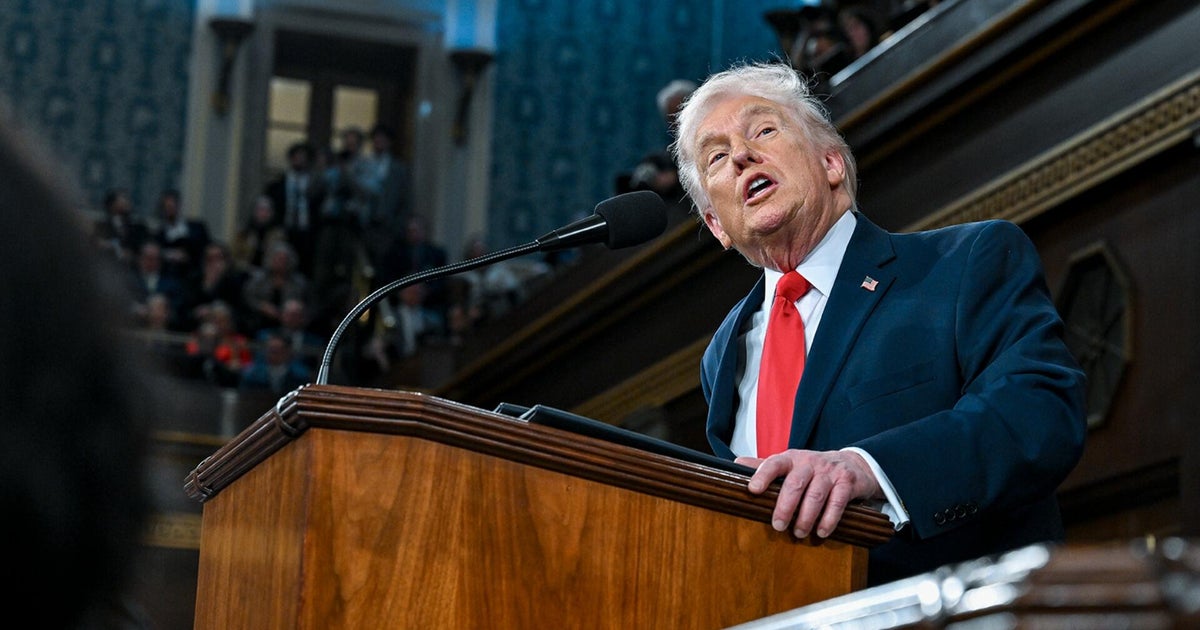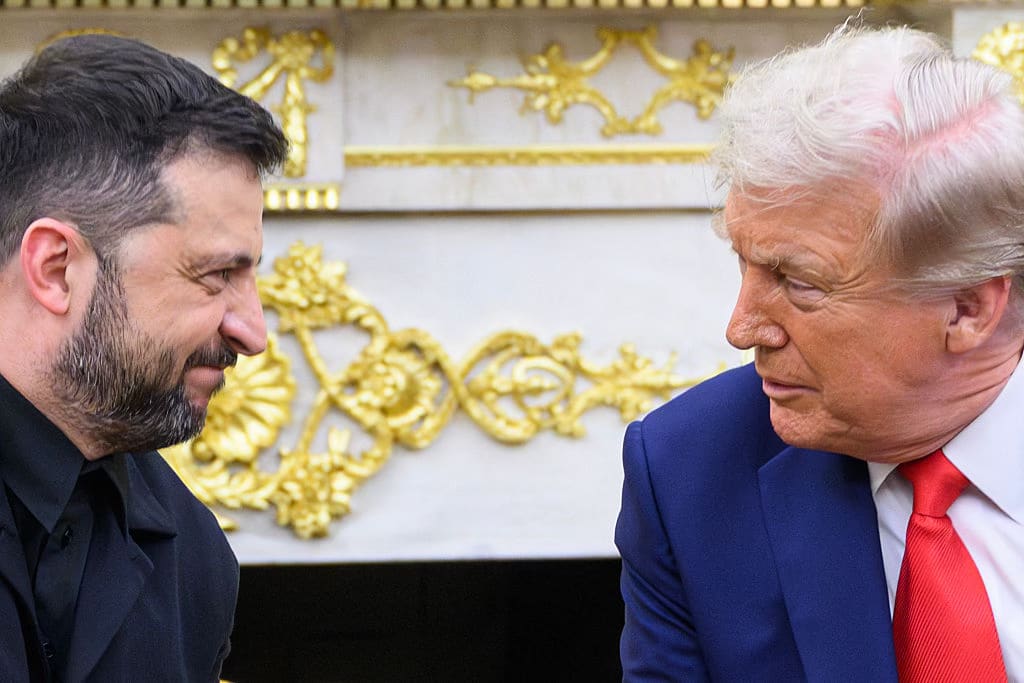How Russian state TV has changed its tune on Donald Trump
Moscow -- When it comes to the U.S. government, Russian TV pulls no punches. "Failure," "not making any sense," "liar" -- these are just a few of the labels that anchors on Russia's state-run TV have pinned on President Donald Trump in recent months.
Television remains the primary source of news for more than 80 percent of Russia's population, according to polls, so for millions of viewers across the country, the berating of the U.S. leader is nothing new. Russia's biggest and most watched TV channels, funded and controlled by the Kremlin, have cultivated the anti-American sentiment since U.S.-Russia relations soured over the annexation of Crimea and the conflict in eastern Ukraine in 2014.
But Kremlin propagandists on the airwaves took a decidedly friendlier tone in their coverage of Mr. Trump during the 2016 U.S. election campaign. While the U.S., its politics and culture, was still bashed regularly, Mr. Trump received praise and support.
That narrative has changed significantly over the past couple of years.
Man of virtues
"We really cheered for him," Dmitry Kiselyov, host of Russia's most popular news show, "Vesti Nedeli," admitted happily in a segment aired in January 2017, right after Mr. Trump's inauguration.
Russian TV channels warmed up to Mr. Trump in May 2016, after he won the nomination. TV pundits had been painting Clinton as the worst possible option for the White House. She was "Russophobic," they said, warmongering and basically a stooge of big corporations. Mr. Trump was merely the lesser of two evils.
As the race went forward and Mr. Trump expressed sympathies to Russia and Vladimir Putin, TV pundits laid it on thicker; Clinton was suffering from dementia, they alleged; she used to take drugs; people who tried to expose or investigate her or her husband died under mysterious circumstances; when she worked as a lawyer, she once defended a pedophile.
Mr. Trump, on the other hand, was virtuous. "He never smoked a cigarette in his life and never had a sip of alcohol," the Rossia 1 TV channel said. Instead, he had enjoyed a "head-spinning" career, had billions of dollars in his pocket, and "success with women."
Toning it down
In February 2017, Bloomberg reported that the Kremlin had ordered state media to cut back on all the positive coverage of Mr. Trump. That report came a week after a pro-Kremlin group known as the National Liberation Movement rallied in front of Kiselyov's office in Moscow, demanding he tone down his "Trumpmania."
The Kremlin denied ordering TV channels to do anything, but the tone changed quickly.
Mr. Trump's first statements as president had sparked concerns that his policies towards Russia might not actually differ much from those of President Obama.
"We embraced the new master of the White House too soon, didn't we?" wondered the host of a news show aired by Zvezda, a TV channel run by Russia's Defense Ministry.
By mid-April of 2017, there had been a complete U-turn. Kiselyov told his viewers that he personally believed Mr. Trump was far more dangerous, and less predictable, than Kim Jong Un.
Disappointment
After the spring of 2017, pretty much all coverage of Mr. Trump was infused with criticism. Some episodes of "Vesti Nedeli" would attack him less than others -- especially those about the Mueller investigation into alleged Russian interference. Just like Mr. Trump and his team, pro-Kremlin propagandists rigorously maintained that there had been no collusion.
There were certainly no more 20-minute long segments depicting Mr. Trump as a hero who would make America, and its relationship with Russia, great again.
"Trump was a 'dark horse' of the race. We had certain expectations of him, hopes to change the situation for the better," Konstantin Kosachyov, a member of the Federation Council, the upper chamber of Russia's parliament, told the Kommersant newspaper in April 2017.
"It was a time of expectations and hopes," Kosachyov recalled. "We can say that Trump is not living up to our expectations."
"Even though Trump himself hasn't said anything particularly negative about Russia, at some point it became clear that his administration -- even people he personally appointed to various high-ranking posts -- is fully prepared for a confrontation with Russia," Mikhail Troitsky, a Moscow-based analyst, told CBS News.
Resignation, but hope
Cautious concern turned into blatant criticism as Mr. Trump ordered missile strikes on Syria and threatened North Korea with military intervention. Complimentary epithets, such as "brave" and "determined" were replaced with "brusque," "elephant in a china shop," and even "petty tyrant."
By last year, Russian state TV channels had returned to their usual U.S.-bashing.
TV pundits criticized Mr. Trump for unpredictability in his decision making. Mr. Trump, they said, treated trade agreements with other countries "as toilet paper, tearing pieces off when it suits him." He was a "hypocrite" for sanctioning Russia over the poisoning of former spy Sergei Skripal in England, but going soft on Saudi Arabia after the murder of Washington Post columnist Jamal Khashoggi.
Russian political analysts berated him on television for unfairly taking credit for the destruction of ISIS as he ordered U.S. troops out of Syria, behaving like a "stubborn goat" during the partial shutdown of the U.S. government, and for clashing with other leaders around the globe.
"He fears he would go down in history as a softy," quipped Rossia 1 anchor Dmitry Kiselyov on one of his Sunday news shows.
Mr. Trump's opponents -- who Russian media portrayed as special counsel Robert Mueller, the Democrats, the media, even ordinary people protesting in front of the White House -- got their share of bashing, too. All the pressure on Mr. Trump had tied his hands, confused him and prevented him from seeing the situation clearly, Russian TV argued.
"Trump seems to be lost in the fog of suspicions," a report on the Mueller investigation said.
This notion became the cornerstone of the Kremlin's disenchantment with Mr. Trump, Troitsky said: "Disappointments probably stemmed from Trump's inability to free himself from the ties and restrictions he's enmeshed in by his government and the Congress -- especially now that the Democrats got the majority of seats in the House."
But there was still hope, the analyst argued. Hope that Mr. Trump might win another election in 2020, and that he'll be able to put the collusion crisis behind him and finally fulfil his plans of cooperating with Russia.
"It is unlikely that he changes his attitude towards Russia, so Russia will continue to hope that he will eventually come out of this crisis willing to work with Russia," Troitsky said.
Russia's initial reaction to the release of the Mueller report over the weekend appeared to suggest that hope was, in fact, still very much alive in Moscow.




